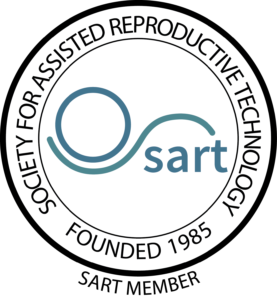Receiving the right fertility diagnosis
Every Tennessee fertility doctor at our clinic is dedicated to making the right fertility diagnosis, helping hopeful parents save time and money on their journey to build a family. Because there are many causes of infertility, obtaining the correct diagnosis is an essential first step.
Steps to making the right fertility diagnosis
We understand that each patient is different and only make fertility treatment recommendations after we obtain the right diagnosis for each individual. To help make an accurate diagnosis, each Tennessee fertility doctor at our clinic will thoroughly review a patient’s medical history and have both partners undergo diagnostic tests.
- Blood work allows us to assess a female patient’s ovarian reserve and hormone levels. The hormone levels typically tested include anti-Mullerian hormone, estradiol, prolactin, follicle-stimulating hormone and thyroid-stimulating hormone.
- Semen analysis can be crucial in making the right diagnosis because it enables us to determine the count, movement and shape of sperm.
- Preconception genetic screening reveals any inheritable genetic conditions that hopeful parents may have. If a patient is a carrier, preimplantation genetic diagnosis (PGD) can be performed on resulting embryos to ensure only healthy embryos are transferred.
- Transvaginal ultrasound helps our doctors make the right fertility diagnosis by determining if a patient has any uterine abnormalities by revealing the shape and size of the uterus, as well as the health of the ovaries.
Uterine abnormalities that can be observed through ultrasound include fibroids and uterine septum, while ovarian abnormalities, including endometriosis or polycystic ovary syndrome, can also be identified.
- Hysterosalpingogram (HSG) is a radiology procedure that involves inserting dye into the uterus and fallopian tubes. HSG helps to determine if the fallopian tubes are open, and if the uterus is free of issues that could prevent embryo implantation.
- Minimally invasive laparoscopy is needed in certain situations to confirm potential diagnoses discovered on ultrasound or HSG. Our Tennessee fertility doctor will address any issues discovered during the procedure to improve your chances of conception.
As leaders in reproductive medicine, each Tennessee fertility doctor at our clinic utilizes the latest and most-effective diagnostic methods to ensure we make the right fertility diagnosis.
What happens after the diagnosis?
After results from these tests are assessed, the hopeful parents will meet with a Tennessee fertility doctor who will go over the results and discuss the diagnosis and treatment options. We don’t believe in a one-size-fits all model of treatment, so we collaborate with patients to develop the best course of treatment as soon as possible.
By making the right diagnosis, our fertility specialists are able to create a comprehensive treatment plan that is designed to accommodate the individualized treatment, timing and financial needs of hopeful parents.
Contact us to learn more about how we can help you receive the right fertility diagnosis.






